This Woman Survived A Horrifying, Real-Life Shark Attack
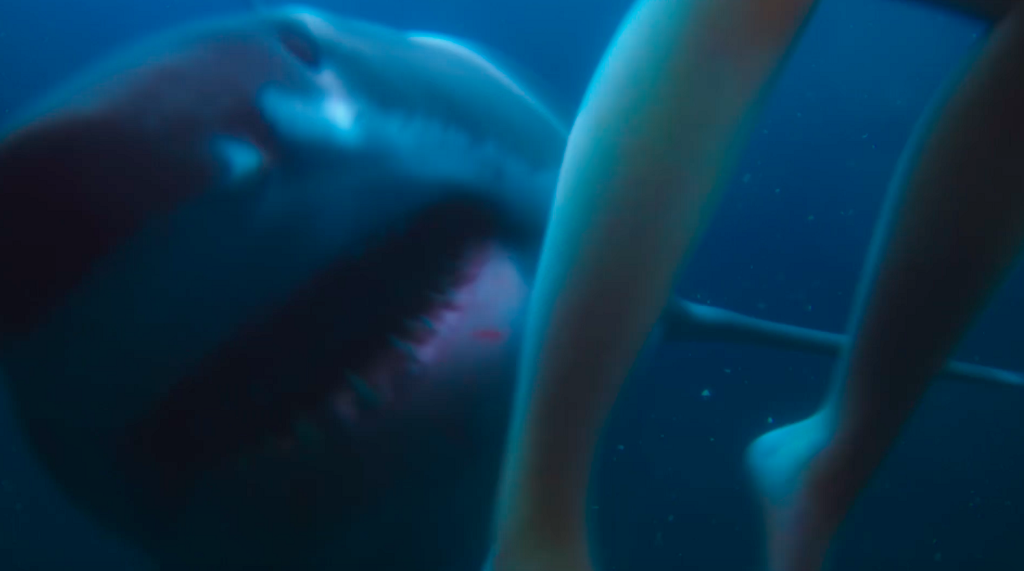
Sponsored by ‘47 Meters Down’
“My first instinct was to get out of the water. I was screaming at the top of my lungs, ‘Get me out, get me out!’”
Only 10 minutes before, Maria Korcsmaros had set out for a swim off the coast of Newport Beach, California, training for a half-Ironman race. It was Memorial Day weekend and the beach was dotted with hundreds of people. She’d just reached the second buoy—about 200 yards offshore—when she felt a sudden, piercing pain shoot through her body.
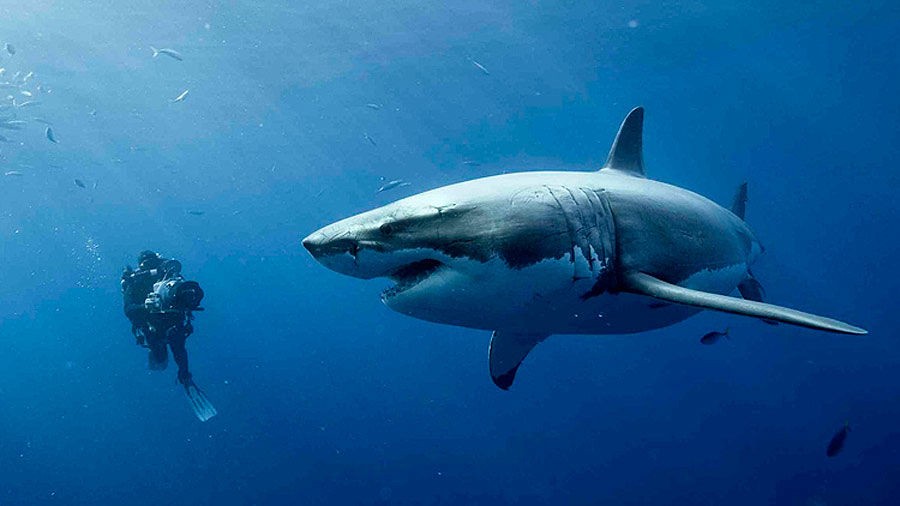
“From the force and intensity of the pain, I thought to myself, there’s only one thing this could be, and that’s a shark.”

Waving frantically, Maria got the attention of a nearby lifeguard boat whose rescuers lifted her out of the water less than a minute later. Within an hour, she was in the hospital being treated for a shark bite that covered her entire torso, leaving her with three broken ribs, a fractured pelvis, a punctured liver, a severed femoral nerve and a detached tricep.
Maria’s story is everyone’s worst summer nightmare. And yet for ocean-lovers everywhere, we accept a certain level of risk when we step into the water.
So we asked Dr. George Burgess, biologist and director of the International Shark Attack File: How can we lower our chances of a shark attack?
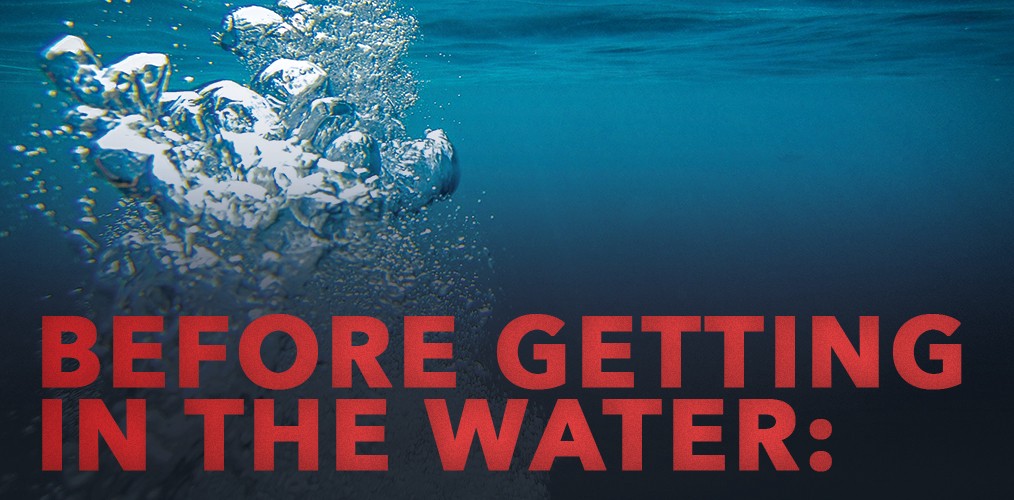
1. Be aware of your visibility.
“Ninety-five percent of bites are no doubt cases of mistaken identity,” says Dr. Burgess. “The shark interprets activities of humans near the water’s surface as being one of their normal prey items.”
Especially at night or in murky waters, kicking and splashing can look to a shark like a tasty fish meal.
2. Avoid bright colors.
Sharks have a keen eye for contrast. According to Burgess, “colors like orange and yellow can be seen quite well. We in the shark research field call it ‘yum yum yellow’ because it’s very visible to sharks. Try to wear swimwear that blends into the environment or isn’t far off from your natural skin tone.”
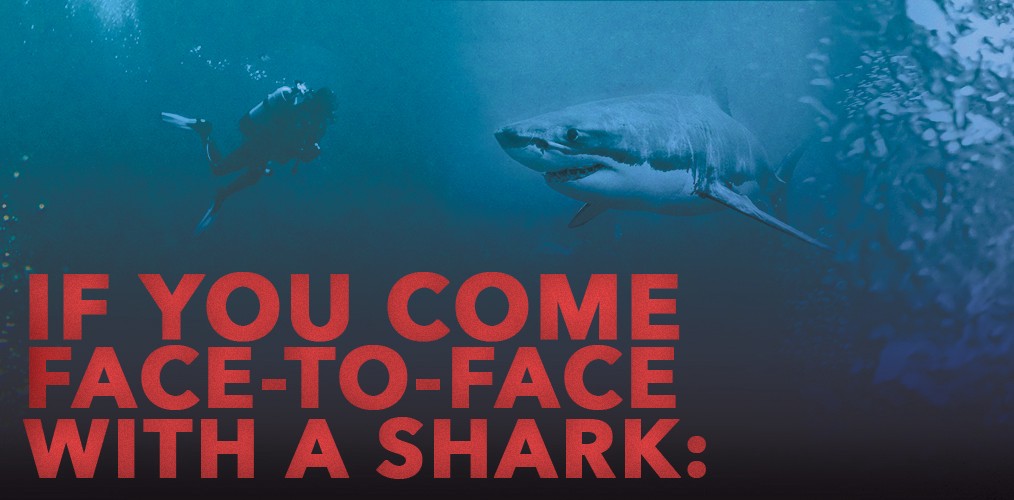
1. Get out of the water.
“Get out of the water, first and foremost,” says Burgess. “While this may be obvious to you or me, it’s not always obvious to surfers or people who are used to seeing sharks in the water.”
2. Seriously.
“I can’t tell you how many times I’ve talked to a surfer who got bit on the ankle and when I ask why they didn’t get out of the water when they saw the shark they say, ‘but that next wave, dude!’”
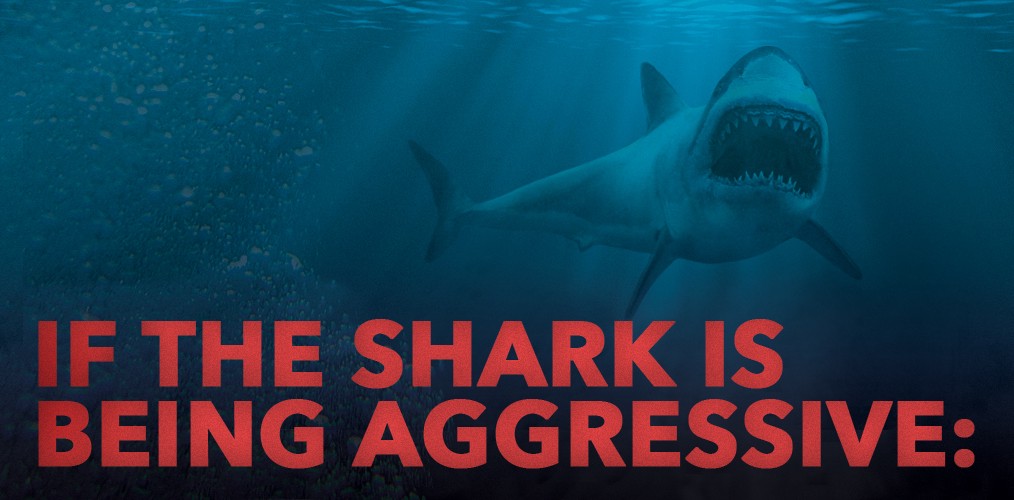
1. Get big.
“If a shark becomes aggressive, don’t be passive, be aggressive back,” says Burgess. “Predators respect size and power.”
2. Pop it on the nose.
A shark’s nose is sensitive just like ours, so a blow to the snout can confuse the shark, giving you some time to get away. But remember, if you miss hitting the nose, you risk putting your hand right into the shark’s mouth.
“If you can, take off a flipper [or another inanimate object] and pop it on the nose,” Burgess recommends, “You can always replace a flipper but you can’t replace a hand.”
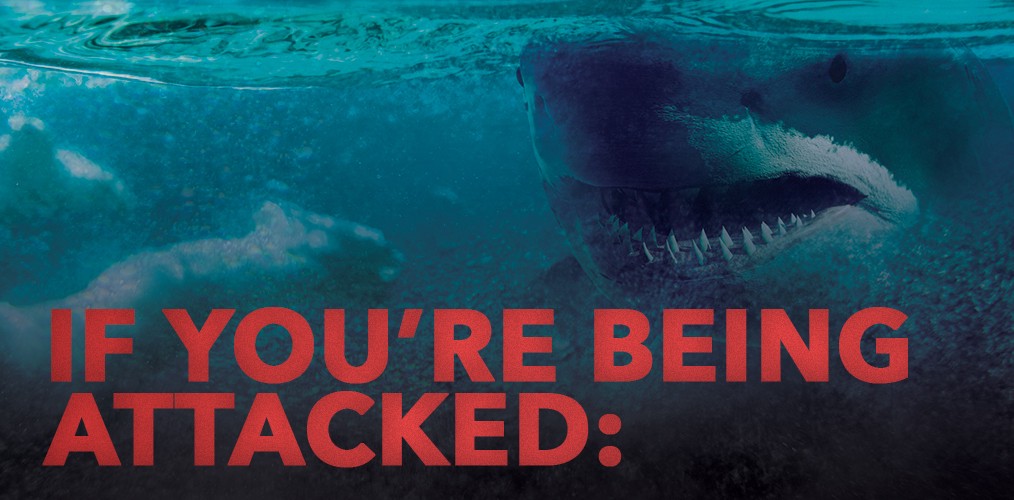
1. Go for the eyes and gills.
If you find yourself in the throes of a shark’s bite, fight back by targeting its most sensitive areas. Poke it in the eyes or stick your fingers into its gill slits, located right behind the eyes. “The animal is likely to let go because of discomfort, give you another opportunity to get out of the water,” says Burgess. When all else fails, don’t be afraid to kick, punch, and give it all you’ve got. “Go down fighting is the take home message.”
Maria was lucky. Not only did she receive swift medical attention, but as a professional fitness trainer, her great physical shape helped her heal quicker than expected.
Within 9 days of the attack, Maria was out of the hospital. In February of 2017, she walked a half-marathon as a recovery race.

“I wanted something to focus on, to give me some kind of motivation to get moving,” says Maria.
Now she is back in the water, training again for the sport she loves. While she admits she’s anxious about the open ocean, Maria does not wish harm on the animal that attacked her.
“Even though there’s danger for people entering the water because a shark is a predator, if we’re going to enjoy the oceans and the fish, we can’t just go and hurt them,” says Maria. “I think we just need to be careful.”
Whether sharks are your life’s passion or your greatest fear, get a front row seat to hungry great whites in “47 Meters Down,” in theaters June 16. Tickets available now.
